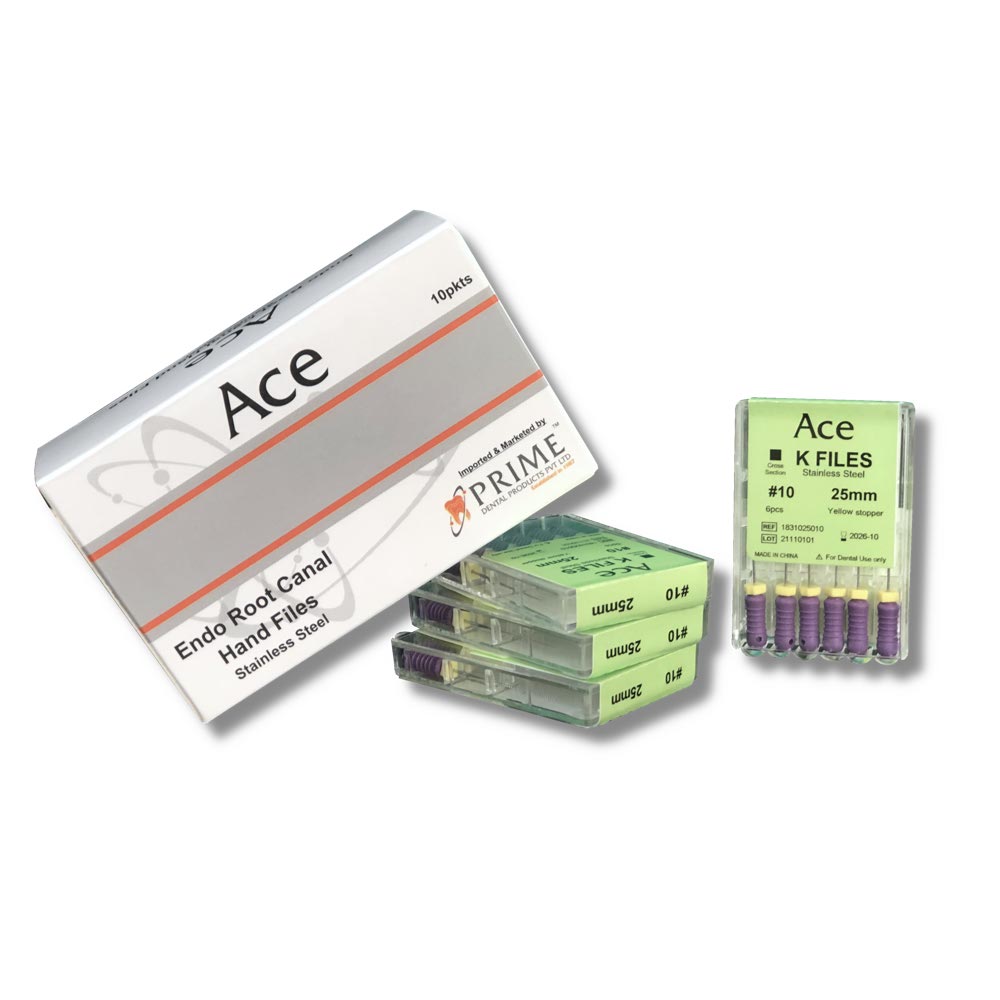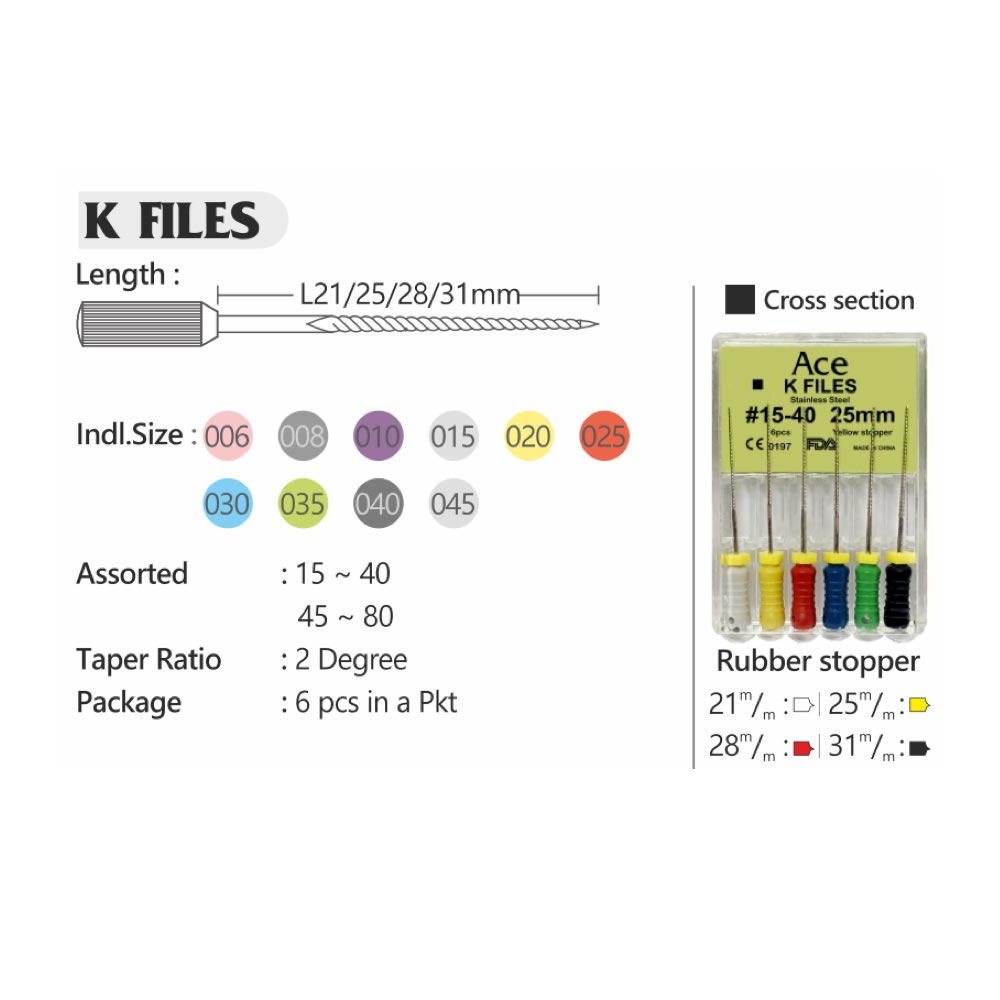Prime Dental ACE K-Files 21MM | Hand Operated Stainless Steel Dental Files for Canal Negotiation, Cleaning, and Shaping of the Root Canal System
Cash on Delivery (COD) Payment Service Available COD enabled for selected products only. If all items in your cart are COD enabled. The eligible cart value for COD falls within the Rs. 100 to Rs. 10,000 range.
Save Rs. 500 Discount on order above Rs 20,000
Save Rs. 200 Discount on order above Rs 10,000
Save Rs. 100 Delivery charges on orders above Rs 5,000
Now go add some variable products!
Description
ACE K- Files 21 mm is an extraordinarily sharp and mirror-like finished edge with high ductility makes for excellent working characteristics. The hard-fiber stainless steel prevents corrosion after repeated cleaning and sterilization.
| Brand | Prime Detal |
|---|---|
| Benefits | Sharp and mirror-like finishing edge. |
| Indications | This is the dental file with a shank used for enlarging the root canal. |
| KEY Specifications | #. Cutting part: Stainless steel (including nickel and chromium) #. Shank: Polybutylene terephthalate (PBT) |
| Directions To USE | Steps of the Step-back technique. #. Apical enlargement: After working length determination the apical part is instrumented first. The first file that binds in the canal at the working length without #. Irrigation: Copious irrigation is important throughout the shaping of the canal walls, as the filing and reaming actions used during cleaning and shaping generate debris, which also can lead to infection and inflammation of the root canal or apical region. Copious irrigation helps to clear the loosened debris out of the canal and also serves to facilitate Step back phase: #. Recall the working length of the canal and the size of the last file (AMF) used. Subtract 1mm increments from the original working length with each larger file |
| Packaging | 1 X 6 ACE K-Files in a Box |
|---|









